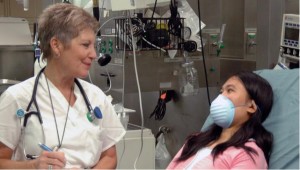Be able to decipher the patient’s message.
Get to know the patient well enough to discover the underlying meaning (intent) of his/her communication. Be alert and perceptive enough to pick up the correct message.
Many people feel uncomfortable talking about their feelings, especially if they are trying to be “good patients.” Learn to “read between the lines.”
When communicating with patients, each Practical Nurse has to find the ways that are the most effective for the people and circumstances concerned.
Be realistic in your relationships with people; avoid making assumptions or judgments about your patients’ behavior. If you have negative thoughts about something a patient says or does, try to keep in mind that he is an adult, responsible for making his own decisions. You do not want him to feel he must conceal anything from you. You want him to see that you will accept him for what he is; you will allow him his own identity.
Be emotionally mature enough to postpone the satisfaction of your own needs in deference to the patient’s. Find sources other than the therapeutic relationship to meet your own needs.

